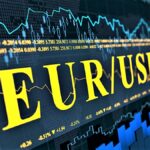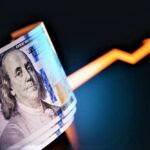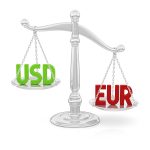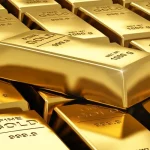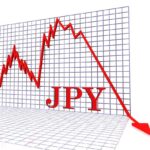EURUSD falls to around 1.0200 as the US dollar holds steady due to anticipation that the Fed would only lower interest rates once this year.
At the beginning of the week, EURUSD falls to a new low of more than two years, approaching 1.0200. As bond yields rise and the US dollar (USD) performs well, the major currency pair declines. Nearly 110.00, the highest level in more than two years, reached by the US Dollar Index (DXY), which measures the value of the US dollar relative to six major currencies. 10-year US Treasury Yields are trading at about 4.75%, near a new annual high.
US NFP statistics for December, traders reduce their Fed dovish wagers.
Growing rumors that the Federal Reserve’s (Fed) current policy-easing cycle temporarily stall caused US bond yields to rise. Following Friday’s announcement of the positive US Nonfarm Payrolls (NFP) statistics for December, Fed dovish bets were squeezed. Unexpectedly, fresh payrolls exceeded November’s report, and the unemployment rate slowed.
A note from Bank of America (BofA) stated, “Given a resilient labor market, we now think the Fed cutting cycle is over.” The BofA went on to say that there is “robust” economic activity and that there is “little reason for additional easing.” Inflation risks have skewed to the upside, the bank added.
The CME FedWatch tool indicates that the Fed is not anticipated to lower interest rates prior to its policy meeting in June.
The US Producer Price Index (PPI) and Consumer Price Index (CPI) statistics for December, which scheduled for release on Tuesday and Wednesday, respectively, will be of particular interest to investors this week.
Daily Market Update: EURUSD falls as ECB Lane recognizes the need for additional interest rate reductions.
Due to the negative market sentiment that has put a lot of pressure on the Euro (EUR), EURUSD is under selling pressure. The appeal of risk-perceived assets has decreased as a result of investors’ increased risk aversion because to concerns that protectionist measures implemented by US President-elect Donald Trump’s administration could spark a global trade war.
In order to create a new tariff strategy, Donald Trump is thinking about declaring a national economic emergency. on the basis of law. Trump warned throughout the election campaign that the EU will “pay a big price” for failing to purchase “enough American exports.”
The Euro remains weak domestically due to strong expectations of more policy easing from the European Central Bank (ECB). ECB Chief Economist Philip Lane stated at a “policy dialogue” at the Asian Financial Forum (AFF) 2025 on Monday that the central bank will probably continue to lower interest rates in order to prevent the economy from growing “too slowly.” This year, the ECB must strike a balance between being “neither too aggressive nor too cautious,” Lane continued.
Boris Vujčić, the deputy governor of the Croatian National Bank and an ECB policymaker, has also stated that he is at ease with market conjecture over additional interest rate reductions.
Boris Vujčić, the deputy governor of the Croatian National Bank and an ECB policymaker, has also stated that he is at ease with market conjecture over additional interest rate reductions. Expectations of a “acceleration in the current policy-easing pace” were, nevertheless, held back by Boris. “Gradual interest rate cuts amid uncertainty” was what he promoted.



